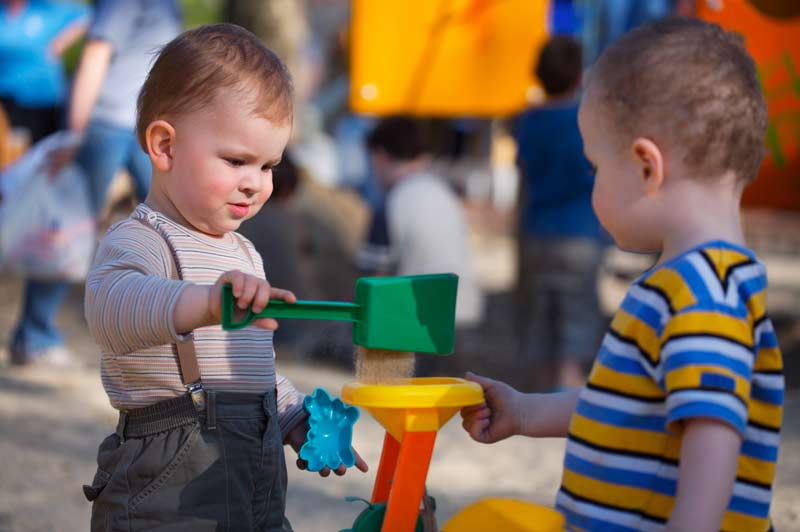
Even 5-year-olds know to protect their reps. Children are more generous when they know their actions will be seen, according to a new study.
The findings, published Oct. 31 in the journal PLoS One, suggest that even kindergarteners have learned to play the social game and strategize ways to burnish their reputation.
"Much like the patterns of charity we see in adults, donation tendencies in children appear to be driven by the amount of information available to others about their actions — for both adults and children, the more others know about their actions, the more likely they are to act generously," said study co-author and Yale University researcher Kristin Lyn Leimgruber in a statement.
Leimgruber's team gave 5-year-olds stickers and told them they could share one to four of them with another child of the same age. Some of the children could see their sharing partner, while others were hidden from view.
The team found that the children were stingier when the other youngster was hidden from them. The kids also hoarded more loot when they had to give stickers in an opaque box rather than a transparent one that showed what they were giving.
Overall, the kindergarteners were pretty selfish: Only those children who saw their partners and gave their stickers in a clear box consistently donated the maximum of four stickers.
Interestingly, past studies showed children were more generous than the current study.
Sign up for the Live Science daily newsletter now
Get the world’s most fascinating discoveries delivered straight to your inbox.
"Previous studies that observe high levels of generosity may have inadvertently included the same audience and transparency cues," that motivate kids to share, the researchers wrote in the journal article.
Follow LiveScience on Twitter @livescience. We're also on Facebook & Google+.

Tia is the managing editor and was previously a senior writer for Live Science. Her work has appeared in Scientific American, Wired.com and other outlets. She holds a master's degree in bioengineering from the University of Washington, a graduate certificate in science writing from UC Santa Cruz and a bachelor's degree in mechanical engineering from the University of Texas at Austin. Tia was part of a team at the Milwaukee Journal Sentinel that published the Empty Cradles series on preterm births, which won multiple awards, including the 2012 Casey Medal for Meritorious Journalism.
Why is yawning contagious?
Scientific consensus shows race is a human invention, not biological reality









